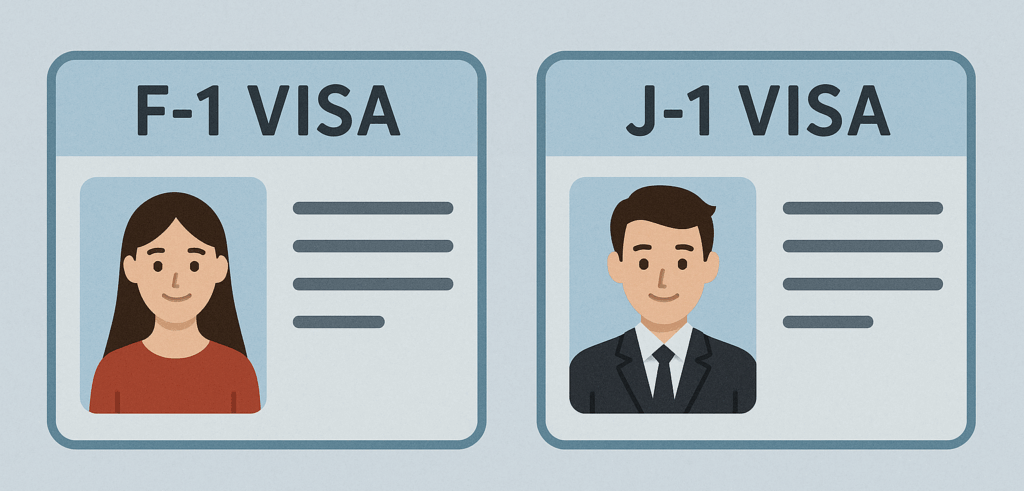A Complete Comparison for Parents of International Students
When planning early study abroad in the U.S., one of the most important decisions is whether your child should live with a host family (homestay) or attend a boarding school. Both options offer unique benefits and challenges, and the best choice depends on your child’s personality, maturity, academic goals, and family values. Below is a comprehensive comparison across seven key factors.
Table of Contents

1. Living Environment & Supervision
Homestay
- Your child lives with an American host family in a home environment.
- Supervision is more personal and home-like, ideal for younger or emotionally sensitive students.
Boarding School
- Students live in dormitories with resident faculty or dorm parents.
- Daily life follows strict schedules and curfews.
- Supervision is structured but less personal.
Best for: Homestay suits younger, home-oriented students; boarding school suits independent, self-disciplined students.
2. Academic Support
Homestay
- Students attend day school and commute daily.
- Academic support depends on school programs and may rely on family assistance.
- Academic monitoring is less consistent.
Boarding School
- Structured academic support is provided such as study halls, tutoring, access to teachers.
- Colleges and counseling resources are available on-site.
- Peer-driven academic culture supports success.
Best for: Students who need structured academic help and a strong learning community.
3. Cultural Immersion & Language
Homestay
- Full immersion in American daily life in customs, meals, conversations.
- Excellent for conversational English development and adapting to local culture.
Boarding School
- The campus is culturally diverse, often with many international students.
- English use in class is strong, but peer circles may limit immersion.
Best for: Students who need personalized cultural integration and constant English practice.
4. Emotional Support & Adjustment
Homestay
- Host families often provide emotional warmth and personalized care.
- A home-like setting helps reduce homesickness and cultural shock.
Boarding School
- Emotional support is available through advisors or counselors.
- Students grow resilience but may initially feel isolated.
Best for: Younger or emotionally sensitive children benefit from homestay; self-reliant teens thrive in boarding situations.
5. Cost Comparison
| Category | Homestay (Day School) | Boarding School |
| Tuition | $25,000–$45,000/year | $50,000–$80,000/year |
| Housing & Meals | $15,000–$25,000/year | Included in tuition |
| Total Estimated | $40,000–$65,000/year | $55,000–$75,000/year |
Costs vary based on school quality, location, and services.
6. College Preparation
Homestay (Day School)
In a homestay arrangement, academic outcomes are influenced less by the school’s prestige and more by the resources and support available outside of the classroom. While day schools may deliver strong academic programs, students often rely heavily on external guidance—including private tutoring, college counseling, and parental involvement—to build a competitive profile. Quality homestay environments enhance cultural immersion, but ultimately, success in college admissions often depends on the family’s ability and the external support they secure.
Boarding School
At a boarding school, almost every element of college prep is institutionally integrated. Rigorous academics, mandatory study periods, in-house tutoring, and experienced college counselors are all part of campus life. These schools also often have long-standing reputations and strong matriculation records, with many students admitted to elite universities. In such environments, a school’s rank and embedded infrastructure play a decisive role in shaping outcomes.
Summary
- Boarding schools exert structural control over all aspects of college preparation—students benefit from cohesive curricula, embedded counseling, and prestigious alumni networks.
- Homestay environments, while potentially academically solid, lack centralized college-prep systems. Students in this setting must supplement with private support and strong parental or guardian involvement.
- Best fit: Boarding schools offer a self-contained, institution-driven path ideal for students targeting top-tier U.S. universities. Homestay suits those who have access to external mentoring and family-led college planning.
7. Student Personality Fit
| Personality Type | Best Fit |
| Shy, emotionally sensitive | Homestay |
| Independent, self-disciplined | Boarding |
| Strong English speaker | Boarding |
| Needs family-like environment | Homestay |
| Prefers structured routine | Boarding |
8. Strategic Preparation & School Type
According to StudyBGE, U.S. private high schools fall into four categories—with different preparation timelines for each Boston Global Education-Study in US
- Elite Boarding Schools (e.g., Phillips Academy, Andover): Admissions are highly competitive (under 10%). International students typically begin preparation in Grades 5–6, building academic excellence, near-native English, extracurriculars, independence, application essays, and interviews over 3–4 years Boston Global Education-Study in US.
- Good Day Schools: Less competitive than elite boarding schools. International students often begin preparation in Grades 7–9, relying on strong English and host family arrangements. These schools offer rigorous academics and cultural integration, and many students from these schools successfully enter top universities Boston Global Education-Study in US+1Boston Global Education-Study in US+1.
This timeline insight supports selecting homestay with quality day-school options, especially when time or maturity for elite boarding isn’t available.
Final Advice: Homestay or Boarding School?
There is no universal answer—select the best option based on your child’s:
- Age and emotional maturity
- English proficiency
- Desire for independence vs. family-style support
- Academic goals and target universities
- Family budget
International students often do well in good day schools paired with certified host families. For highly driven, academically competitive students aiming for elite colleges, boarding school remains a strong choice—if they are ready.
How We Support You
At BGE, our consultants help you match your child’s profile with the right living arrangement. We offer:
- Guardian support and emotional check-ins
- Homestay screening and onboarding
- Dorm life preparation and orientation
- Assistance with boarding and day-school applications



